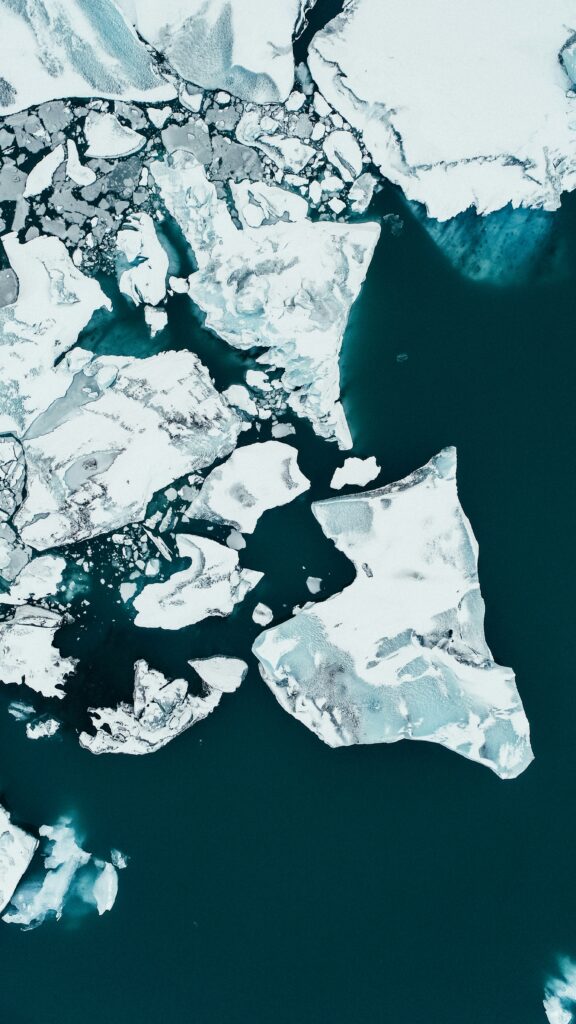Glaciers Losing More Water: A new study has revealed that glaciers are melting at an alarming rate, losing more water each year than the world will consume in the next 30 years. Since 2000, glaciers have lost around 7 trillion tonnes of ice. This has caused sea levels to rise by almost 2 centimeters. The Alps have been among the hardest-hit areas, experiencing rapid ice loss.
Glacier Melt at Unprecedented Speed
Glaciers are melting due to climate change. Scientists have known this for years. But a recent study published in Nature offers the most detailed look yet. Researchers from the Glacier Mass Balance Intercomparison Exercise (GlaMBIE) found that glaciers have shrunk by over 5 percent since 2000. The melting has only sped up in the last decade.
Tyler Sutterley, a senior researcher at the University of Washington, says the impact is huge. “Regions that have had glaciers for thousands of years are losing these icons of ice,” he explained. This rapid melting is a threat to freshwater supplies and is causing sea levels to rise faster than before.
How Fast Are Glaciers Melting? – Glaciers Losing More Water
Since 2000, glaciers have lost over 6,500 billion tonnes of ice. That’s about 270 billion tonnes each year. To put this in perspective, Michael Zemp, the study’s lead author, explained that this is the amount of water the world’s population uses in 30 years, assuming each person drinks three liters of water daily.
The study shows that glacier melt is speeding up. Between 2000 and 2011, glaciers lost 231 billion tonnes of ice each year. But from 2012 to 2023, the loss grew to 314 billion tonnes annually, a 36 percent increase. In 2023 alone, glaciers lost a record 548 billion tonnes of ice.
The mass loss of glaciers now surpasses the loss from Greenland’s ice sheet by 18 percent. It is more than double the loss from Antarctica’s ice sheet. The Alps have been the worst-hit area, losing nearly 40 percent of their glaciers since 2000. Other regions like the Middle East, New Zealand, and western North America have also lost over 20 percent of their glaciers.
Impact on Sea Levels and What’s at Stake – Glaciers Losing More Water
The melting of glaciers has already raised sea levels by nearly 2 centimeters. This makes glacier melt the second-largest factor in rising sea levels, after warming oceans. Professor Andy Shepherd, from Northumbria University, warns that this is only the beginning. “Every centimeter of sea-level rise exposes 2 million more people to annual flooding,” he said.
Since 1992, global sea levels have risen by more than 10 centimeters. NASA predicts that the rate will speed up in the coming years. Even if countries take action to cut emissions, glaciers will continue to melt for years. This is because glaciers take time to respond to changes in temperature. But the study makes it clear that the actions of the world’s leaders still matter. If emissions continue to rise, we could lose nearly half of the world’s glaciers. But strong climate policies could limit that loss to just 25 percent.
“Every tenth of a degree of warming we prevent will save some glaciers and reduce the damage we face,” said Zemp.
What Can Be Done?
The study shows that the situation is urgent. There is still time to slow the glacier melt, but only if the world takes action now. Strong climate policies and global cooperation are needed to cut greenhouse gas emissions. If countries don’t act, glaciers will continue to melt, and sea levels will keep rising, causing harm to coastal cities and communities.
However, even with immediate action, it is clear that much damage has already been done. The loss of glaciers is irreversible. The only question now is how much more will be lost and how the world will adapt to these changes.
For more world news updates, visit Euro News 24.
